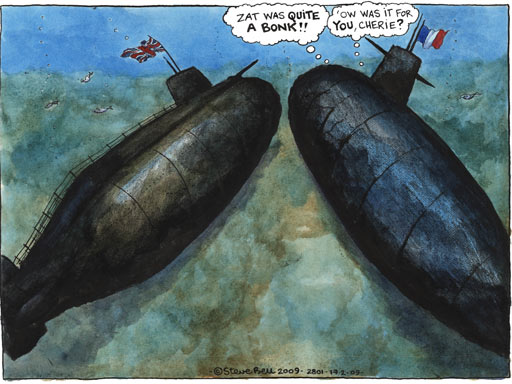 Peter Mandelson's plans for Royal Mail are basically a scorched-earth retreat from some of the last moral territory they inherited from their elders and betters. His disgraceful surrender of any residual Labour values is helpfully laid bare, in his own words, in the Guardian today.
Peter Mandelson's plans for Royal Mail are basically a scorched-earth retreat from some of the last moral territory they inherited from their elders and betters. His disgraceful surrender of any residual Labour values is helpfully laid bare, in his own words, in the Guardian today.He thinks the pension deficit is a reason to privatise the company and a sign of incompetence: actually the proceeds from the massive pensions holiday Royal Mail took was just slushed straight into the Treasury. So they gave Government their money and weakened their business? Of course Ministers can't pay it back! For contrast, the banks threw their own money away, but they then get bailed out with ours.
What's more, the £3.4bn deficit, built up thanks purely and directly to Government mismanagement, is less than 15% of the RBS one-year loss announced today. It's not a bail-out they should be doing, they should just be paying back their debts.
The idea that an entirely private company will become more profitable to us, the taxpayers, if a private company takes a stake, is profoundly absurd as well as a category mistake. The private company will demand a rate of return on their investment which can only be disproportionate, and the costs will be borne by staff and users.
It's a category mistake because it misunderstands what the Royal Mail is for, as noted here before. We don't expect it to make a profit. We expect it to deliver our mail, which is rightly regarded as a vital public service even by those of us who know how the internet works, and we'd like it to do it cheaply for us.
We value the staff, we value the universality, and even we anti-monarchists think Royal Mail sounds better than Consignia. We don't expect the NHS or the police force to turn a nifty profit, and despite the deployment of Mandelson's famed dark arts, we don't expect Royal Mail to do so either.
The political logic behind this is incomprehensible. I'd love to see the polling numbers, but I'm certain it's driven entirely by ideological fervour and hatred of the public sector, not some response to public opinion. I couldn't be more angry - I wish, yet again, that there was some way I could cancel my subscription to the Westminster cavalcade of horrors.
And where's the Westminster opposition on this? There's some on the benches behind where Peter Mandelson would be standing were he even accountable to a vaguely democratic chamber, and there's the odd Tory with principles on the issue. However, no Labour rebellion can succeed, because Mandelson can, if he needs to, "rely on Conservative and Liberal Democrat votes to get it through".
The Tories are no surprise on this, although it helps illustrate the extent to which they've not changed one bit. But the Liberals? While Labour wants to start with a 30% sell-off, they actually proposed starting at 49% last year. I wonder if all those poor local residents who worried about losing their post office know that those strange but friendly people in yellow tights and hats with the petitions who're trying to help are, in their day jobs, plotting the privatisation and certain demise of the whole enterprise, seven years before its five hundredth anniversary?










